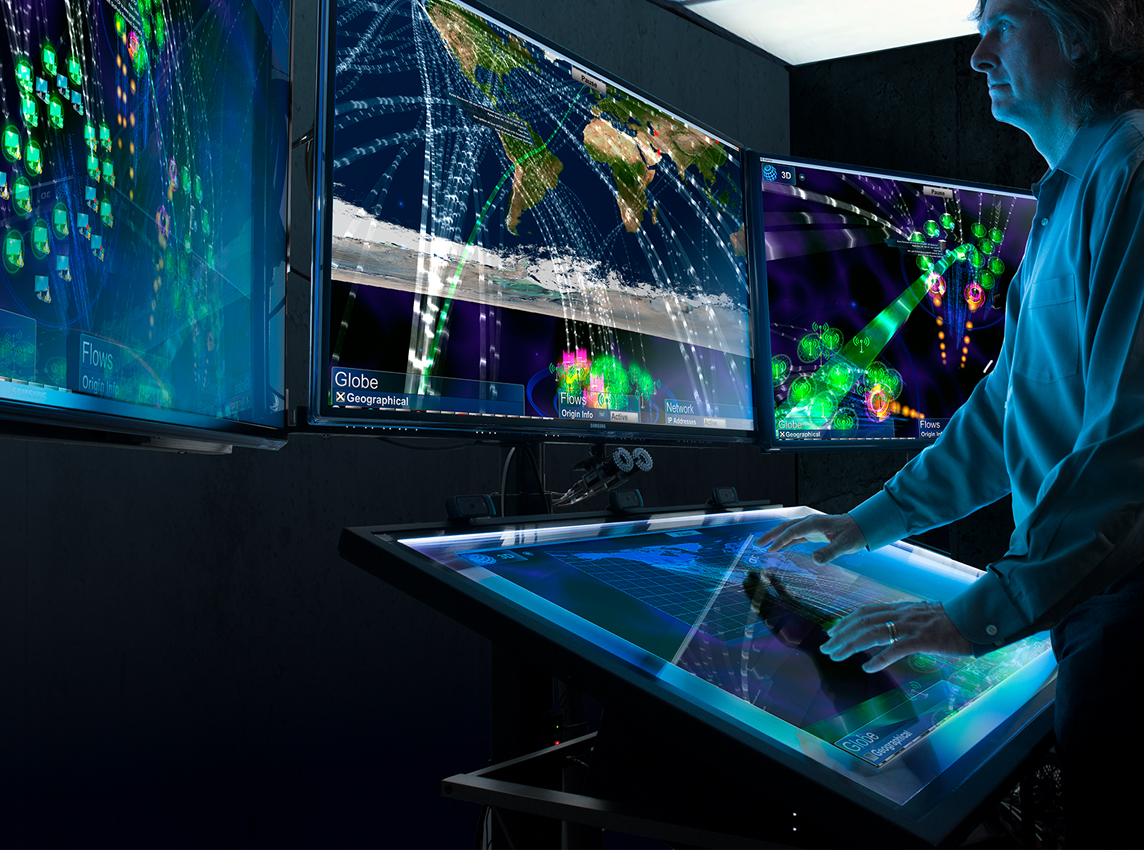
Computer science lab
Building assessing, and defending vital computer systems that affect all of our lives
We study the logical foundations of scalable systems beyond the scope of traditional testing or simulation, and we create and apply high-level tools for rigorous mechanical analysis.
Focus areas
SRI’s Computer Science Lab develops leading-edge tools and methods for areas including computer security, high-assurance systems, advanced user interfaces, computer networking, robotics, biotechnology, and nanotechnology. We study the logical foundations of scalable systems beyond the scope of traditional testing or simulation, and we create and apply high-level tools for rigorous mechanical analysis.
Real-world impact
-

SRI researchers tap Large Language Models to improve password security
Using advanced AI to analyze billions of leaked passwords, SRI researchers reveal the risky human tendencies that make passwords far too easy to guess.
-

Karen Myers: When I introduced Flakey the Robot to Alan Alda
The head of SRI’s AI Center recalls when the TV star and science-communications expert visited SRI to learn more about our extraordinary work in robotics.
-

Patrick Lincoln: I often feel like work isn’t even work
An SRI vice president and director of the Computer Science Lab explains why he’s spent much of his career at SRI: the people.
Latest publications
-
Deductive Synthesis of the Unification Algorithm: The Automation of Introspection
We are working to create the first automatic deductive synthesis of a unification algorithm. The program is extracted from a proof of the existence of an output substitution that satisfies…
-
Semantic Instrumentation of Virtual Environments for Training
We discuss an approach in which the virtual environment is semantically instrumented in order to allow for the tracking of and reasoning about open-ended learner activity therein.
-
Diagnosis cloud: Sharing knowledge across cellular networks
This paper presents a novel diagnosis cloud framework that enables the extraction and transfer of knowledge from one network to another. It also presents use cases and requirements. We present…
Computer Science Lab leadership
-

William Mark
Senior Technology Advisor, Commercialization
-

Patrick Lincoln
President, Information and Computing Sciences
Featured researchers
-

Patrick Lincoln
President, Information and Computing Sciences
-

Ulf Lindqvist
Senior Technical Director, Computer Science Lab
-

Peter Neumann
Principal Scientist, Computer Science Lab